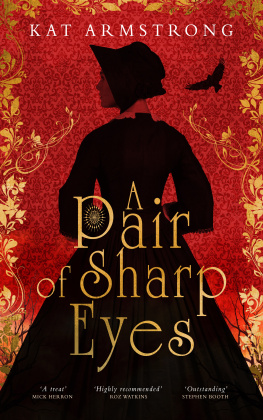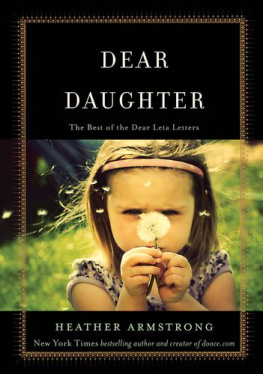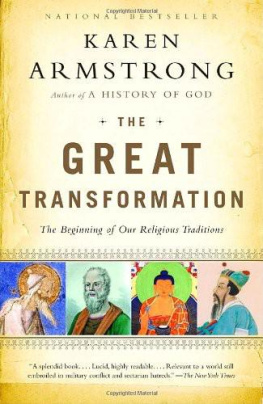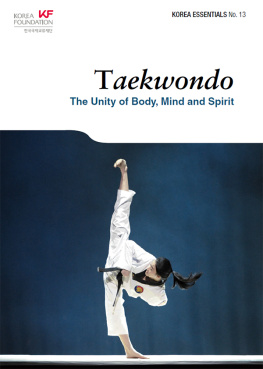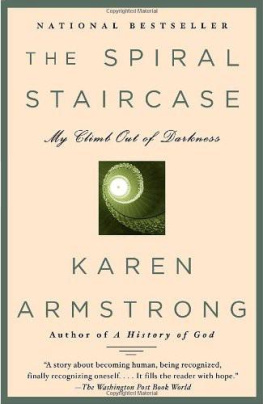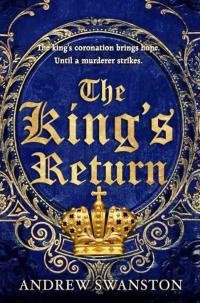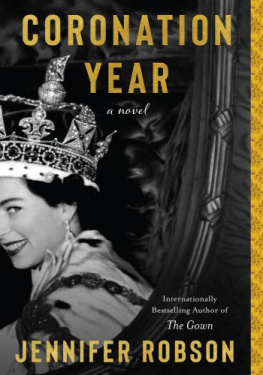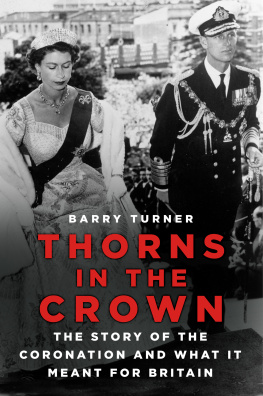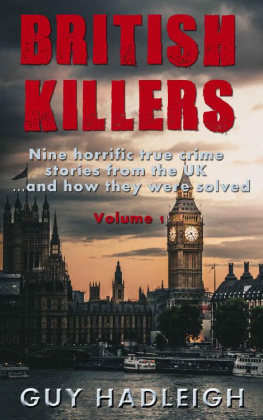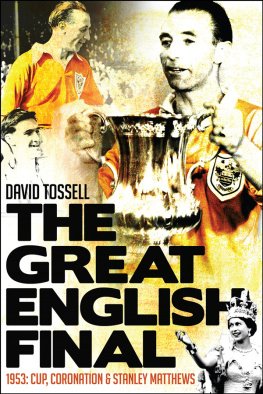
A Pair of Sharp Eyes
Copyright 2019 by Kat Armstrong.
All rights reserved. No part of this publication may be reproduced, distributed or transmitted in any form or by any means, including photocopying, recording, or other electronic or mechanical methods, without the prior written permission of the publisher, except in the case of brief quotations embodied in critical reviews and certain other noncommercial uses permitted by copyright law. For permission requests, write to the publisher, addressed Attention: Permissions Coordinator, at the address below.
Kat Armstrong/Hookline Books, Bookline & Thinker Ltd www.hooklinebooks.com
Publishers Note: This is a work of fiction. Names, characters, places, and incidents are a product of the authors imagination. Locales and public names are sometimes used for atmospheric purposes. Any resemblance to actual people, living or dead, or to businesses, companies, events, institutions, or locales is completely coincidental.
Book Layout 2019 BookDesignTemplates.com Cover design by More Visual Ltd
A Pair of Sharp Eyes/Kat Armstrong 1st ed.
ISBN 978-1916410336
To Bill, Eleanor and Tom
Chapter One
Wiltshire
Tuesday 23rd October, 1703
At dusk the wind rises, and rain beats against the leaking stagecoach windows. I give thanks to God that the driver let me sit inside. Yet the air is fuggy from so many cramped and sweating passengers, and I am in the most uncomfortable place of any, a quarrelsome gentleman on each side of me, and the floor so full of cloak-bags and bundles of clothing there is scarcely room to squeeze my feet.
Two raw country misses whisper opposite and do not meet my eye. At midday their father delivered them to the turnpike in Chippenham, determined his daughters should ride inside, though I heard him grumble to the coachman about the cost of their fares, and he never stopped for his girls to kiss him good-bye, but returned to his waggon without a word. My own father would not have been so lacking in tenderness to his children. In the corner next to these maids is a slight, bearded man I would put at one-and-twenty. He scribbles calculations in his notebook and takes no part in the chit-chat around him, nor is offered any.
A stout gentleman in a blue velvet frock-coat and tight white breeches continues to speak.
As you would see if you were to visit my plantations in Spanish Town, Mr Cheatley, negroes are not worth your concern. He has been wrangling with the other gentleman since I took my place at Calne. You would never wring your hands over the plight of an ass or a carthorse. A working animal is just that.
Mr Cheatley, as pale-faced and meagre as the other is swarthy and fat, shifts irritably and chews his lip before indignation spurs him into speech.
Mr Osmund, I could not enjoy my wealth if I knew it derived from the subjugation of my fellow man. My business is manufacture, and for the sake of my conscience and my eternal soul, every one of those I employ are true-born Englishmen, and fairly paid for their labours.
I am forced to swallow back a Bravo, Sir. Neither would welcome an interruption from a girl of fourteen.
Ah ha. Mr Osmund smiles pleasantly. Remind me, what do you manufacture, Mr Cheatley? Brass, is it?
I own an iron-works. Our foundries produce sundry goods. Nails, beads, chains.
Chains, you say. For what purpose?
Chiefly aboard ship. Mr Cheatley shakes out his handkerchief as if to dismiss his interrogator, and makes a small performance of blowing his nose.
And the beads? A crafty look comes over Mr Osmunds jowly face. His stubble is so black it looks like ingrained dirt. What be their destination?
Africas West Coast. The tribesmen prize our pipe beads very high. Mr Cheatley coughs. I have just been up to town, at the invitation of a business associate. You may have heard of him: Master Ralph Fowler, Renter Warden of the Worshipful Company of Ironmongers.
Indeed. But let me see your profits are bound up with the negro trade just as mine, dyou not concede? For how do the African princelings pay for their barrels of beads and nails?
Mr Cheatley frowns and blinks, and if a certain friend had not told me how a ship is fitted out for carrying human cargo, I might pity him his probing by Mr Osmund.
I cannot be held to account for the destination of my goods. I sell to the highest bidder, he says plaintively. If others export my manufactures to purchase captive labour, why, I lament but cannot prevent it. The curls of his grey wig quiver, and he fixes his gaze on the other as if to implore his assent.
The burly gentleman considers the point, an amused gleam in his eye, before slapping his broad thigh and pronouncing: No cause for self-examination, Mr Cheatley, as I have said already. The Africa trade is a lawful and moral one which, if it does anything, lifts the negro out of darkness into the light of rational Christian understanding. He grins and throws up his hands. We are to be congratulated for the enlightenment we propagate. Excuse me, ladies.
By this address he refers to me and the other maids. One is about my age, fourteen or so, the other a year or two older. Both peep from beneath their bonnets and blush. Mr Osmund pulls out a flask and draws from it greedily before smacking his lips and replacing the stopper. Then he bethinks himself and offers the flask to Mr Cheatley, who shakes his head with a twitch of the nose and says, Thank you, Sir, I am replete.
As you wish. Mr Osmund lifts an eyebrow and tucks the flask away.
How long since you arrived from Jamaica, Sir? Mr Cheatley asks.
Three months. I sail back to Spanish Town a week today, after Ive met with my fellow shareholders in Bristol. We own a substantial company under-writing ships and enterprises relating to the export-import trade. I was detained in London longer than expected. Mr Osmund shifts complacently in his seat, his belly overspilling his lap. By a lady who was kind enough to accept my hand.
Mr Cheatley inclines his head. Congratulations, Sir. May I enquire where is the lady?
Ordering her wedding clothes. Her dressmaker in St James is working night and day to prepare her trousseau. Were to be married in St Marys Redcliffe on Tuesday next. Examining his fingernails, he smiles at the thought.
Redcliffe? Forgive me, Sir, the name is inauspicious. You have heard the latest news from Bristol? Perhaps not? The coachman told it to me when we last changed horses.
Not another loss at sea? Damn it, we should have crossed to Spanish Town before the winter storms. Eliza is fearful already; a wreck will hardly calm her nerves.
I hear no tell of shipwrecks. This is closer to home. A murdera series of murders round Bristol and Somerset, the latest in Redcliffe. All were youngsters asleep in hay-lofts, stables and other outdoor places. Bristol folk are up in arms, hunting a pedlar named Red John. He left two brothers for dead in an old quarry. Its said theyd been horribly abused.
The country girls eyes are as round as buttons, and the younger steals her hand into her sisters.
Mr Osmund shakes his head. The children of the idle poor have always been preyed on and always will. I daresay the parish wont miss them.
His words recall the day we were consoled with a similar suggestion when my brothers fat al injuries left my mother and father with one less mouth to feed. My heart pounds and I cannot let such a cruel remark pass. The boys families will miss them, Sir, dont you think?

